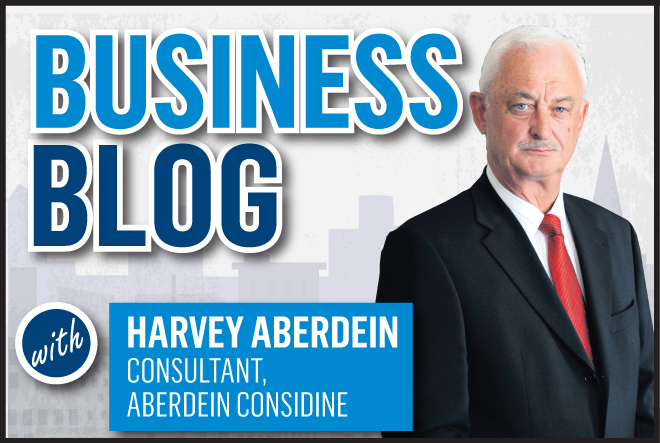Long before the rise of the mobile smart phone, Albert Einstein, one of the most brilliant brains of the 20th century, said: “I fear the day technology will surpass our human interaction. The world will have a generation of idiots.”
The surroundings and society in which he surmised this more that 80 years ago could not be more different than the world we find ourselves in today.
Yet his sage remarks perfectly describe the worrying route technology is taking us.
Two of the most seismic shocks in recent history – Donald Trump’s election and the Brexit vote – could not have happened without technology and the ability it has given people to spread misinformation to millions of readers within seconds.
Many stories during both of these campaigns turned out to be completely fake – and in most cases spread with malicious intent to undermine the opposing side.
The mass consumption of information which doesn’t pass through the checks and balances that traditional media needs to apply to news stories is creating the idiotic generation Mr Einstein warned of.
Quite rightly, it is making the political mainstream very nervous.
Fake news and Russian interference – either by influencing fake news sites, or by hacking or misinformation – are viewed as a serious threat to the democratic process, particularly since the US presidential elections.
The German federal election next autumn is the world’s next big political moment. And already the fake news is spreading – from rumours that Merkel was in the east German secret police, to others suggesting she is Adolf Hitler’s daughter.
It genuinely is terrifying that people would believe this stuff – but Germans are also proving themselves susceptible to false information.
So it was with equal despair that I listened to recent remarks by Mark Carney, the Bank of England Governor, about how the “machine age” is upon us and the devastating impact it will have on jobs and industry.
For those who missed it, Mr Carney suggested that robots could put 15million Britons out of work in the coming decades.
In an alarming vision for workers, he warned many jobs would be “hollowed out” as huge technological advances mean roles could be automated instead.
He said the increase of the machines in the workplace puts administrative, clerical and production staff most under threat.
And he has even predicted that entire professions, such as accountancy, could be pushed to the brink of extinction as developments in computers make their roles redundant.
The Governor’s most striking remarks were the following: “The fundamental challenge is, alongside its great benefits, every technological revolution mercilessly destroys jobs and livelihoods – and therefore identities – well before the new ones emerge.
“This was true of the eclipse of agriculture and cottage industry by the industrial revolution, the displacement of manufacturing by the service economy, and now the hollowing out of many of those middle-class services jobs.”
The questions I ask are these: Is it really worth killing the jobs and prospects of millions of people to increase the wealth of a few? And are we going to be any better off as a society as a result?
And, If machines do everything, what’s the point of you or me?
My firm provides property, legal and financial services to businesses and individuals across Scotland.
We employ hundreds of extremely talented and knowledgeable professionals whose motivation for getting up each day is to the best possible job for their clients – the people who trust them with their most treasured possessions, be that their house, family or finances.
Every interaction with a client is a chance to make things better.
People come back to us time and time again, sometimes multiple generations of the same family, because we do a best job we can and – most importantly – because they know we care.
It’s people dealing with people. People understanding people.
Machines can’t do that.
Looking specifically at financial services, people may ask why pay for advice when you technology and computers allow you to invest by yourself?
Everyone knows that if they buy something relatively cheaply and then sell when it has grown in value, there will be a profit. Easy. Who needs a financial adviser? But if it really is that easy, why are we not all rich?
Economic bubbles rely on investors getting it wrong. People see an asset increasing in value and want a share in that growth. So in they go. And the more who invest the higher the price of the asset goes (demand being greater than supply).
This means still more people want to invest and on the upward cycle goes. Until someone, somewhere realises that this asset is now over-priced and decides to take their profit.
The whole thing begins to crash like a stone. Everyone piles out at just the wrong time. Bought high and sold low.
Why do investors continue to follow this path? Because they follow the data and make decisions based on the present.
The instinct to follow the crowd goes back to the prehistoric world, when it gave us a hunting advantage.
Technology and the rapid spread of information have amplified it.
My point is this – a person who has seen it all before and understands both the markets and your circumstances can help you make better decisions. I remain unconvinced that a machine can do the same.
So before we hand the key to our cars, houses and savings to machines, ask yourself: Are we really better off not speaking to other people?
Every interaction is an opportunity to learn. Turning our back on these opportunities will almost certainly leave Mr Einstein’s prophecy fulfilled.
